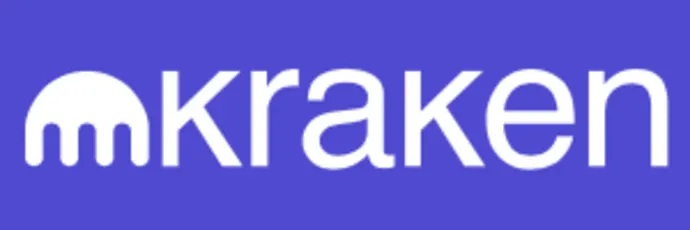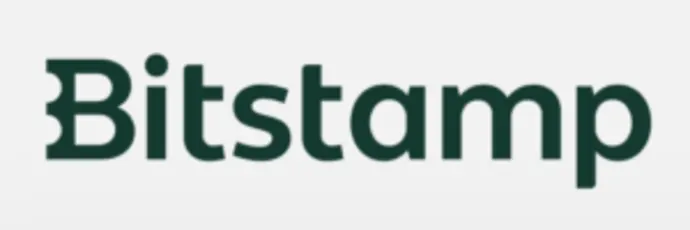Crypto Exchanges with Lowest Fees 2025
By FXCOINZ Editorial
Last updated: Jun 2, 2024 • 3 Min Read
Overview
Looking for a crypto exchange with the lowest fees? You’re in the right place! In this guide, we’ll highlight the top crypto exchanges offering the best value and explain the key differences between using decentralized exchanges (DEX) and centralized platforms
Introduction
Looking for a crypto exchange with the lowest fees? You’re in the right place! In this guide, we’ll highlight the top crypto exchanges offering the best value and explain the key differences between using decentralized exchanges (DEX) and centralized platforms.
Trading crypto has never been easier, with a wide array of exchanges at your fingertips. However, even if the market prices appear the same, hidden fees can significantly affect your returns. Understanding these fees is crucial to maximizing your investments.
Crypto exchange fees come in many forms, such as maker and taker fees, deposit and withdrawal fees, and often hidden costs within the price spreads. While some fees are straightforward, many remain hidden within the trading processes, leading to unexpected costs.
Whether you prefer a centralized exchange, a DEX, or trading directly through a wallet app, you could be paying more than necessary. Here, we break down the various fees and present the crypto exchanges with the lowest costs to help you make the most informed decision.
Comparison Table: Lowest Fee Crypto Exchanges
Exchange | Maker Fee | Taker Fee | Deposit Fee | Withdrawal Fee |
Binance | 0.10% | 0.10% | Free | 0.0002 BTC |
KuCoin | 0.10% | 0.10% | Free | 0.0005 BTC |
Bybit | 0.06% | 0.01% | Free | 0.0005 BTC |
Kraken | 0.16% | 0.26% | Free | 0.00002 BTC |
Bitstamp | 0.10% | 0.20% | Dependent | depends on method |
OKX | 0.08% | 0.10% | Free | 0.0005 BTC |
Crypto.com | 0.075% | 0.075% | Free | 0.0005 BTC |
FTX | 0.20% | 0.20% | Free | 0.0001 BTC |
Gemini | 0.25% | 0.35% | Dependent | depends on method |
Coinbase | 0.50% | 0.50% | Dependent | depends on method |
These centralized exchanges are known for their user-friendly interfaces, extensive features, and robust security measures, making them accessible to both new and experienced traders.
Binance
Binance

Launched in 2017 and headquartered in Malta, Binance has quickly become one of the largest and most popular cryptocurrency exchanges globally. It supports over 600 cryptocurrencies and offers a comprehensive suite of trading options, including spot, futures, and margin trading. Binance's fee structure is highly competitive, with maker and taker fees set at 0.10%. Users can also reduce these fees by holding and using Binance Coin (BNB) for transaction fees. While Binance provides a wealth of features and trading options, its customer support and regulatory issues in some countries can be drawbacks.
Why We Chose It
We chose Binance as one of the top crypto exchanges with the lowest fees because it offers competitive trading fees and a wide array of features that cater to both beginner and advanced traders.
Pros
- Supports a vast range of cryptocurrencies
- Competitive maker and taker fees (0.10% each)
- Advanced trading features and tools
Cons
- Regulatory challenges in certain regions
KuCoin
KuCoin

Founded in 2017 and based in Seychelles, KuCoin has built a reputation as a user-friendly exchange with low fees and a broad selection of supported assets. KuCoin charges 0.10% for both maker and taker fees, and users can further reduce these fees by holding and using KuCoin Shares (KCS). The platform supports a wide range of cryptocurrencies and offers various trading options, including futures and margin trading. However, its limited fiat support and occasional customer service delays may be a concern for some users.
Why We Chose It
We chose KuCoin for its low trading fees and extensive selection of cryptocurrencies, making it a great option for both casual and serious traders.
Pros
- Low maker and taker fees (0.10% each)
- Supports over 450 cryptocurrencies
- User-friendly interface
Cons
- Customer support can be slow
Bybit
Bybit

Bybit, founded in 2018 and headquartered in Singapore, is a derivatives exchange known for its low fees and high liquidity. Bybit charges a maker fee of 0.06% and a taker fee of just 0.01%, making it one of the most cost-effective options for active traders. The exchange specializes in perpetual contracts and futures trading, offering a range of advanced trading tools and features. While Bybit excels in providing a low-cost trading environment, it has a limited selection of supported cryptocurrencies and does not support fiat deposits.
Why We Chose It
We chose Bybit for its extremely low taker fee, making it an excellent choice for active traders looking for cost-effective trading options.
Pros
- Extremely low taker fee (0.01%)
- Supports advanced trading features
- High liquidity
Cons
- No fiat deposits
Kraken
Kraken

Kraken, established in 2011 and based in the United States, is one of the oldest and most reputable cryptocurrency exchanges. Kraken supports over 120 cryptocurrencies and offers a variety of trading options, including spot, futures, and margin trading. The exchange charges a maker fee of 0.16% and a taker fee of 0.26%. Kraken's strong regulatory compliance and security measures make it a trusted platform for trading. However, its higher taker fees and complex interface can be challenging for beginners.
Why We Chose It
We chose Kraken for its strong regulatory compliance and transparent fee structure, providing a secure trading environment with reasonable fees.
Pros
- Transparent fee structure
- Strong regulatory compliance
- Wide range of supported cryptocurrencies
Cons
- Complex interface for beginners
Bitstamp
Bitstamp

Founded in 2011 and headquartered in Luxembourg, Bitstamp is one of the longest-standing cryptocurrency exchanges. It supports a smaller selection of cryptocurrencies compared to other exchanges, but it offers a straightforward and user-friendly trading experience. Bitstamp charges a maker fee of 0.10% and a taker fee of 0.20%, with lower fees available for higher volume traders. The exchange supports fiat deposits and withdrawals, making it easy to fund your account. However, its limited advanced trading features and higher fees for low volume traders may be drawbacks for some users.
Why We Chose It
We chose Bitstamp for its simplicity and reasonable fees, making it an excellent choice for beginners and experienced traders alike.
Pros
- Simple and intuitive interface
- Competitive fees for higher volume traders
- Supports fiat deposits and withdrawals
Cons
- Limited advanced trading features
OKX
OKX

OKX, founded in 2017 and based in Malta, is a leading cryptocurrency exchange known for its low fees and extensive trading options. OKX charges a maker fee of 0.08% and a taker fee of 0.10%. The platform supports a wide range of trading options, including spot, futures, and margin trading, with high liquidity across its markets. While OKX offers a comprehensive suite of features, its complex interface can be challenging for beginners, and it has limited fiat support.
Why We Chose It
We chose OKX for its low trading fees and comprehensive suite of trading options, making it a versatile platform for various trading needs.
Pros
- Low maker fee (0.08%) and taker fee (0.10%)
- Supports a wide range of trading options
- High liquidity
Cons
- Complex interface for beginners
Crypto.com
Crypto.com

Launched in 2016 and headquartered in Hong Kong, Crypto.com has become one of the leading global crypto exchanges. It supports a vast range of cryptocurrencies and offers a comprehensive digital asset ecosystem, including its own blockchain, native token (CRO), crypto visa card, and yield-generating products. Crypto.com charges a flat 0.075% fee for both maker and taker trades, which can be further reduced through higher trading volumes and staking CRO. Despite its impressive range of features, the exchange's customer support can be lacking, and fees can be higher for lower volume traders.
Why We Chose It
We chose Crypto.com for its extensive digital asset ecosystem and competitive fees, making it a great option for mobile traders.
Pros
- Supports over 350 cryptocurrencies
- Comprehensive digital asset ecosystem
- Low trading fees (0.075% for both maker and taker)
Cons
- Fees can be higher for lower volume traders
HTX (formerly Houbi Global)
HTX (formerly Huobi Global)

Founded in 2013 and headquartered in Seychelles, HTX (formerly Huobi Global) is a well-established cryptocurrency exchange known for its robust security measures and extensive range of supported assets. HTX charges a 0.20% fee for both maker and taker trades, with lower fees available for higher volume traders. The platform offers various trading options, including spot and futures trading, with high liquidity. However, HTX's limited fiat support and regulatory challenges in certain regions can be potential drawbacks.
Why We Chose It
We chose HTX for its robust security measures and competitive trading fees, providing a secure and cost-effective trading environment.
Pros
- Strong security measures
- Competitive fees (0.20% for both maker and taker)
- Supports a wide range of cryptocurrencies
Cons
- Regulatory challenges in some regions
Gemini
Gemini

Founded in 2014 and based in the United States, Gemini is a cryptocurrency exchange known for its regulatory compliance and secure trading environment. Gemini charges a maker fee of 0.25% and a taker fee of 0.35%, which are higher compared to other exchanges. The platform supports a smaller selection of cryptocurrencies but provides a user-friendly interface and strong security measures. Despite its higher fees, Gemini's focus on compliance and security makes it a trusted choice for traders.
Why We Chose It
We chose Gemini for its regulatory compliance and secure trading environment, making it a trusted platform for cryptocurrency trading.
Pros
- Strong regulatory compliance
- Secure trading environment
- User-friendly interface
Cons
- Limited range of supported cryptocurrencies
Coinbase
Binance

Launched in 2017 and headquartered in Malta, Binance has quickly become one of the largest and most popular cryptocurrency exchanges globally. It supports over 600 cryptocurrencies and offers a comprehensive suite of trading options, including spot, futures, and margin trading. Binance's fee structure is highly competitive, with maker and taker fees set at 0.10%. Users can also reduce these fees by holding and using Binance Coin (BNB) for transaction fees. While Binance provides a wealth of features and trading options, its customer support and regulatory issues in some countries can be drawbacks.
Why We Chose It
We chose Binance as one of the top crypto exchanges with the lowest fees because it offers competitive trading fees and a wide array of features that cater to both beginner and advanced traders.
Pros
- Supports a vast range of cryptocurrencies
- Competitive maker and taker fees (0.10% each)
- Advanced trading features and tools
Cons
- Regulatory challenges in certain regions
Centralized vs. Decentralized Exchanges
Centralized Exchanges (CEXs)
Centralized exchanges are platforms managed by a central organization. They function as intermediaries between buyers and sellers, providing a convenient and secure environment for trading.
Advantages
- User-friendly interfaces
- Advanced trading features and tools
- High liquidity and trading volume
- Customer support services
- Greater regulatory compliance and security measures
Disadvantages
- Risk of hacking and security breaches
- Users do not have control over their private keys
- Potential for higher fees compared to decentralized exchanges
- Decentralized Exchanges (DEXs):
Decentralized Exchanges (DEXs)
Decentralized exchanges operate without a central authority, allowing peer-to-peer trading directly between users through blockchain technology.
Advantages
- Enhanced privacy and security
- Users maintain control of their private keys
- Lower risk of hacking and fraud
- Generally lower fees
Disadvantages
- Less user-friendly interfaces
- Lower liquidity and trading volume
- Limited customer support
- Fewer trading features and tools
Understanding Fee Types
Maker Fee
- Definition: A maker fee is charged when you add liquidity to the order book by placing a limit order that is not immediately matched by an existing order.
- Impact on Trading: Lower maker fees incentivize users to add liquidity to the market, which can lead to tighter spreads and a more efficient trading environment.
Taker Fee
- Definition: A taker fee is charged when you remove liquidity from the order book by placing an order that matches an existing limit order.
- Impact on Trading: Higher taker fees can discourage users from executing market orders, potentially leading to lower market volatility.
Deposit Fee
- Definition: A deposit fee is charged when you transfer funds into your exchange account.
- Impact on Trading: High deposit fees can deter users from moving funds frequently, affecting the overall trading activity and user experience.
Withdrawal Fee
- Definition: A withdrawal fee is charged when you transfer funds out of your exchange account.
- Impact on Trading: High withdrawal fees can discourage users from withdrawing funds frequently, leading to longer holding periods and potentially impacting liquidity.
Understanding these fees and their impact on your trading strategy can help you choose the right exchange and optimize your trading costs. By selecting an exchange with low fees, you can maximize your returns and enhance your overall trading experience.
© 2025 FXCOINZ. All Rights Reserved.










